Neuro Infections
MBBS, MS (General Surgery), M.Ch. Neurosurgery. A neurosurgeon with over 10 Yrs. years of experience Awarded as the best resident in Neurosurgery and was a regional & zonal winner at TYSA neurosurgery.
Discover Expert Care for Neurological Infections
Do you or your relatives show symptoms of meningitis or encephalitis due to a neurological infection? There is no need to postpone it; do not wait until it becomes too late. Here comes Dr. Pranjal Pandey, the award-winning neurologist in Delhi, who is the best at neuroinfection treatment and providing comprehensive care for complex neurological conditions.
Understanding Neurological Infections
Neurological infections, for example, meningitis and encephalitis, are caused by multiple pathogens, including viruses, bacteria, fungi, parasites, or other microorganisms. Comprehending the symptoms of these infections and meningitis causes is vital for early diagnosis and therapeutic intervention.
Related Treatments
- Brain Tumor Surgery
- Neuro Infections
- Spine Disorders
- Cerebral Palsy
- Dementia Treatment
- Stroke Paralysis
- Brain Hemorrhage Treatment
- Parkinson’s Disease
- Dementia Treatment
Meningitis
Meningitis is an inflammatory condition of the meninges, which are protective membranes around the brain and spinal cord. It can result from different pathogens, including bacteria, viruses, fungi, parasites, and non-infectious agents like chemical irritation and autoimmune disorders. While symptoms such as fever, headache, neck stiffness, and altered mental status are the most common ones, other indicators such as nausea, vomiting, and light sensitivity can also evolve.
Within time, accurate and timely diagnosis and treatment are vital because meningitis can end up in brain cognitive damage, hearing loss, seizures, and even death, especially if brought by bacteria. Diagnosis can be achieved through clinical examination, lab tests such as lumbar puncture for cerebrospinal fluid analysis, and imaging procedures.
Treatment depends on the cause and may include antibacterial antiviral and antifungal medicines and supportive care. Identification and management at the early stage are crucial to have the desired effect and prevent permanent damage to the nervous system.
Recognizing Symptoms and Causes
Meningitis, either bacterial or viral, may manifest clinically with symptoms like fever, headache, neck stiffness, nausea, vomiting, and altered mental status. Bacterial meningitis should receive intravenous antibiotics as quickly as possible to minimize complications.
Treatment of Meningitis
The treatment of meningitis depends on the bacterial meningitis cause, which can be bacteria, viral fungal, or parasitic.
1. Bacterial Meningitis:
Caused by bacteria (bacterial meningitis), it is a medical emergency and demands emergency therapy with intravenous antibiotics (in the vein).
With nosocomial infection, clinicians are likely to initiate broad-spectrum antibiotics empirically while they expect specific laboratory findings.
When the offending bacterium is identified, an antibiotic specific to the microbe is incorporated to create a targeted therapy.
Corticosteroids are often prescribed for use in cases of complications, usually with Streptococcus pneumoniae or Haemophilus influenzae type b, which are frequently the cause of meningitis.
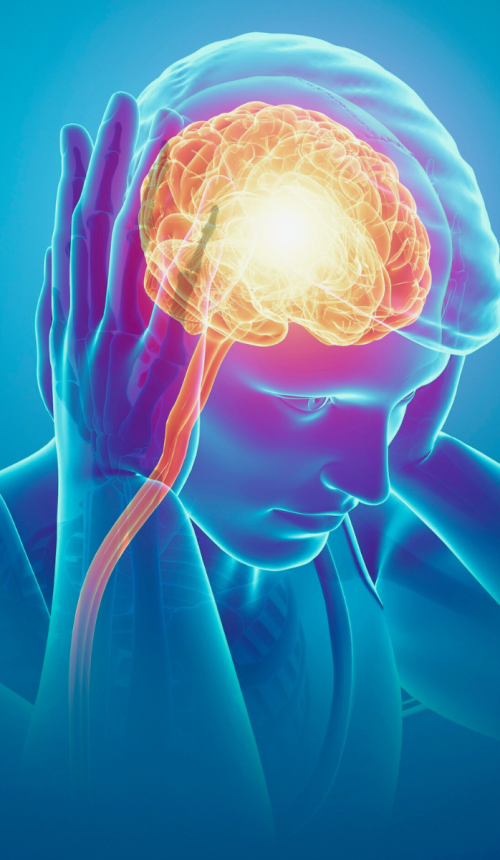
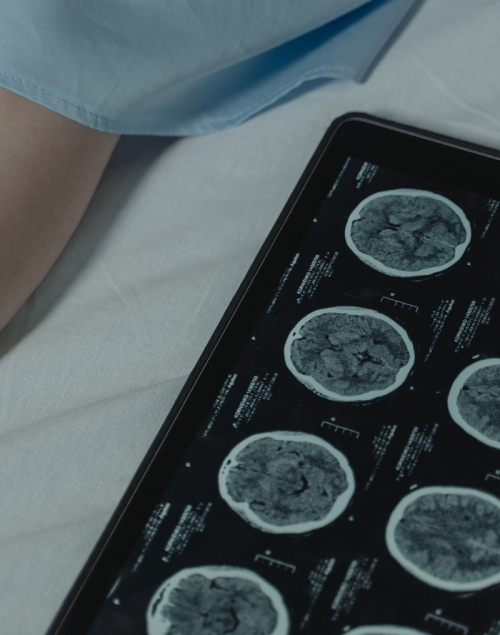
2. Viral Meningitis:
Severe viral meningitis and benign viruses in the cerebrospinal fluid mainly do not require any treatment. They resolve spontaneously.
As a rule, supportive therapy, such as enough rest, imbibing water, and OTC medication to relieve symptoms, are prescribed.
To identify specific kinds of viruses that are known and that could be treated, antiviral meds may be prescribed, such as some herpes simplex viruses or varicella-zoster viruses.
3. Fungal or Parasitic Meningitis:
Meningitis proceeding from a fungus or a parasite is a troublesome invasion that should be fought by applying antifungal or antiparasitic remedies.
These antibiotics are administered via the intravenous route and might continue until the patients fully recover from this infection or show a positive response toward the treatment.
Expertise in Meningitis Treatment
Besides being recognized as the top neurosurgeon in Delhi, Dr. Pranjal Pandey makes a difference by providing excellent care for meningitis treatment and touching each patient’s situation individually.
Contact Dr. Pranjal Pandey Today
Best Neurosurgeon in Delhi
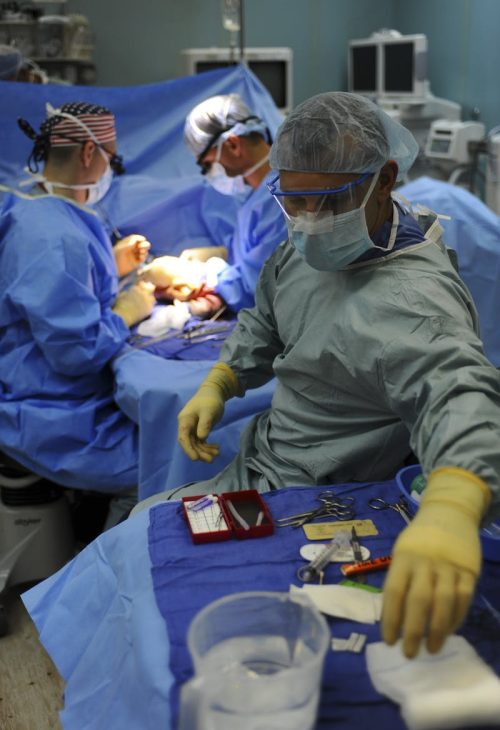
Dr. Pranjal Pandey’s journey to becoming the best neurosurgeon in Delhi is marked by dedication, passion, and a relentless pursuit of excellence.
Encephalitis
Encephalitis is an ailment usually due to brain tissue inflammation commonly initiated by viral infections (HSV, VZV, or enteroviruses). There may also be several causes, for example, bacteria-related, fungal, or parasitic infections, as well as autoimmune diseases. The symptoms entail fever, high-pitched headache, disordered states of consciousness, seizures, and focal neurological symptoms. Improving the speed of the diagnosis is vital to avert the complications of the patients who may develop brain injuries or neurological deficits.
Treatment usually consists of administering antiviral drugs to subdue the multiplication of the virus, administering corticosteroids to suppress inflammation, and providing supportive care for the palliation of symptoms. Immune-modulating therapies may prove vital in some cases of autoimmune encephalitis. In the first place, medical intervention and appropriate treatment make for a favorable outcome for schizophrenia. Getting immediate medical attention to avoid misdiagnosing the symptoms as soon as possible and providing the proper treatment is paramount.
Diagnosis of Encephalitis
A comprehensive brain examination is a process that involves multiple clinical assays, laboratory tests, thorough neuroimaging, and, in rare cases, even an invasive procedure. Here’s an overview of the encephalitis treatment:
Here’s an overview of the diagnostic process:
1. Clinical Evaluation:
To diagnose the underlying cause, we run a detailed medical history examination of symptoms like fever, altered mental status, any neurological deficits, and any recent infection or travel history.
2. Laboratory Tests:
Blood tests are likely to be performed to look for signs indicating an infection or inflammation, such as a CBC, C-reactive protein (CRP), and erythrocyte sedimentation rate (ESR). Serological tests will serve as a diagnosis tool using antibodies or antigens in the blood.
3. Cerebrospinal Fluid (CSF) Analysis:
A lumbar puncture (spinal tap) is the examination that involves obtaining CSF from the fluid that hugs the brain and the spine. CSF assessment allows for looking for white blood cell count, increased protein levels, and glucose that cause infection inflammation. It embraced qualitative features and provided the platform for directly identifying viruses by PCR or culture.
4. Neuroimaging:
Imaging studies such as magnetic resonance imaging (MRI) or computed tomography (CT) scans of the brain may be performed to assess for structural abnormalities, such as brain swelling, lesions, or areas of inflammation.
5. Electroencephalogram (EEG):
EEG may be used to evaluate brain function and detect abnormal electrical activity, which can indicate encephalitis.
6. Brain Biopsy:
In rare cases where the diagnosis remains uncertain, a brain biopsy may be performed to obtain tissue samples for microscopic examination, which can confirm the presence of inflammation or infection.
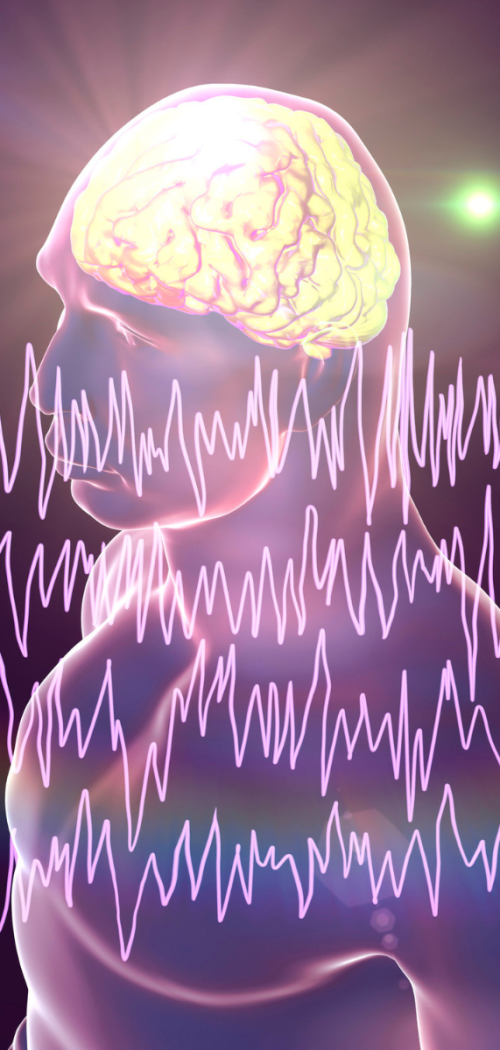
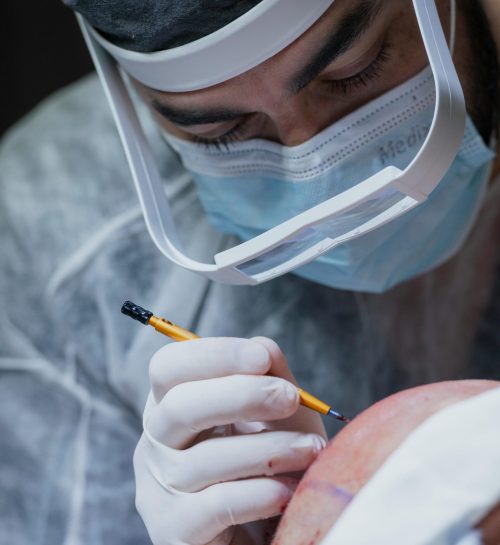
Management of Complications
His expertise extends to diagnosing and managing the encephalitis or meningitis complications associated with these infections, ensuring optimal patient outcomes. At times, hydrocephalus may develop as a result of meningitis which may necessitate an external ventricular drainage (EVD) or Ventriculoperitoneal Shunt (VP Shunt).
Choose Expert Care
With Dr. Pranjal Pandey by your side, you can rest assured that you will receive the best possible neurologist treatment in Delhi. His compassionate approach, with state-of-the-art facilities and advanced treatment modalities, makes him the preferred choice for those seeking expert care for neuroinfections.
Take 1st Step Towards Recovery Neuroimaging:
Imaging techniques like MRIs and CT scans may be employed to look for nervous system abnormalities such as brain swelling, lesions, and inflammation areas.
Contact Dr. Pranjal Pandey Today
Complete Assistance for CNS Infection Treatment
Dr. Pandey has established himself as the best neurologist in the medical field regarding meningitis and other neurological infections like encephalitis, brain abscess, neurocysticercosis, toxoplasmosis, and prion diseases.
Stand Fast on the Way along the Road to Recovery
Don’t allow your health to suffer due to the (cramps or pressure) in your nervous system. As we explained in this session, Dr. Pranjal Pandey is ready to sit with you and walk you through the recovery process toward a healthier life. Set an appointment with Dr. Pandey now and watch the magic! With our first step towards improving your neurological well-being, we, the team at The NeuroMind welcome you as a beginner in this journey.
